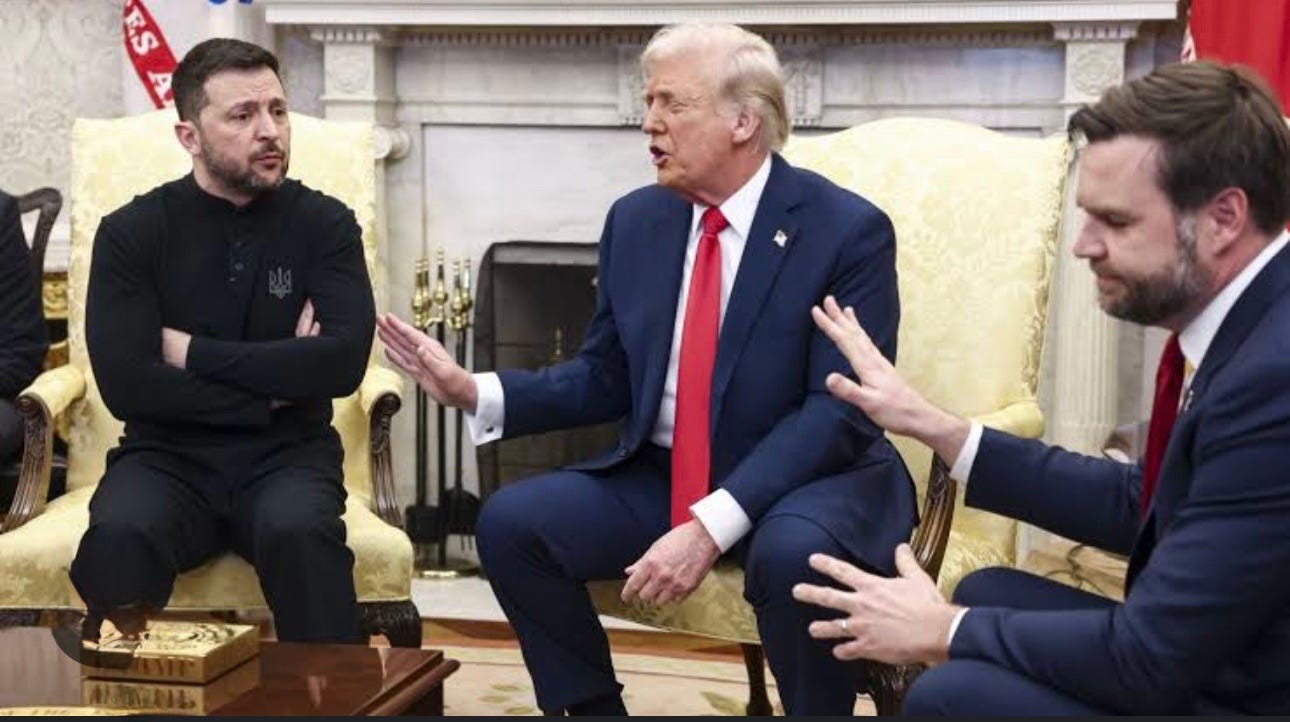Breaking Point: How Zelenskyy’s ‘Own Goal’ Fractured U.S. Relations
Months of behind-the-scenes tension spilled out into open disagreement in the Oval Office on Friday.
The explosive Oval Office confrontation on Friday between President Donald Trump, Vice President JD Vance, and Ukrainian President Volodymyr Zelenskyy marked a dramatic escalation of tensions simmering for years between the U.S. and Ukraine.
This public clash, derailing a rare earth minerals deal and a joint news conference, was no accident, but the boil…
Keep reading with a 7-day free trial
Subscribe to Cranmer’s Substack to keep reading this post and get 7 days of free access to the full post archives.



